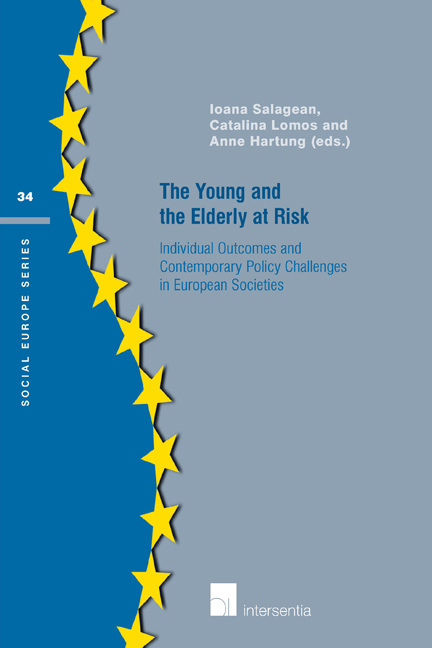 The Young and the Elderly at Risk
The Young and the Elderly at Risk Published online by Cambridge University Press: 13 December 2017
ABSTRACT
While elderly women are found to be vulnerable to poverty in many countries, we still lack in depthinsight as to why this may be. While previous studies rightfully stress the importance of work history, family history and pension regulations in this regard, we demonstrate how an explicit focus on their interaction can improve our understanding of the mechanisms producing poverty among elderly women. To this end, we use Belgian register data covering the lifespan of roughly 9.000 women aged 65 to 71 in 2008. We find that pension policies largely determine how lifecourse events affect old-age poverty risk – whether directly, or indirectly – through their influence on labour market participation. However, an explanation of poverty risk among certain groups of women, such as among married women, purely in terms of pension policy is incomplete. Our analyses suggest that, for those women, asset ownership may also be key for poverty prevention.
Keywords: pension policy, lifecourse, female employment, poverty, elderly Women
INTRODUCTION
Poverty among elderly women is a pressing issue, but by no means a new one. The abundant literature explaining this phenomenon, can largely be divided in two strands: social policy, which mainly focuses on pension regulations in circumventing old-age poverty (e.g. Zaidi et al., 2006; Smeeding and Williamson, 2001), and family sociology, which examines family transitions, career trajectories and their interactions relative to old-age poverty (e.g. Brown and Lin, 2012; Wilmoth and Koso, 2002). While both fi elds have successfully illustrated their merits, there has been little convergence between the two.
In this chapter, we illustrate the necessity of investigating how family histories, career histories and social policy interact. Research studying elderly women's income packages in industrialised countries has shown that their largest source of income consists of pension benefits (Choi, 2006). Arguably therefore, the level of pension benefits largely determines poverty risk among elderly women. Consequently, detrimental lifecourse events can be mitigated by the pension regulations in place. This contribution examines how integrating both a lifecourse and a pension policy perspective improves our understanding of poverty among elderly women in Belgium.
To save this book to your Kindle, first ensure [email protected] is added to your Approved Personal Document E-mail List under your Personal Document Settings on the Manage Your Content and Devices page of your Amazon account. Then enter the ‘name’ part of your Kindle email address below. Find out more about saving to your Kindle.
Note you can select to save to either the @free.kindle.com or @kindle.com variations. ‘@free.kindle.com’ emails are free but can only be saved to your device when it is connected to wi-fi. ‘@kindle.com’ emails can be delivered even when you are not connected to wi-fi, but note that service fees apply.
Find out more about the Kindle Personal Document Service.
To save content items to your account, please confirm that you agree to abide by our usage policies. If this is the first time you use this feature, you will be asked to authorise Cambridge Core to connect with your account. Find out more about saving content to Dropbox.
To save content items to your account, please confirm that you agree to abide by our usage policies. If this is the first time you use this feature, you will be asked to authorise Cambridge Core to connect with your account. Find out more about saving content to Google Drive.